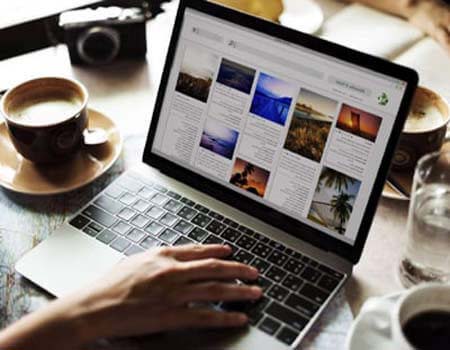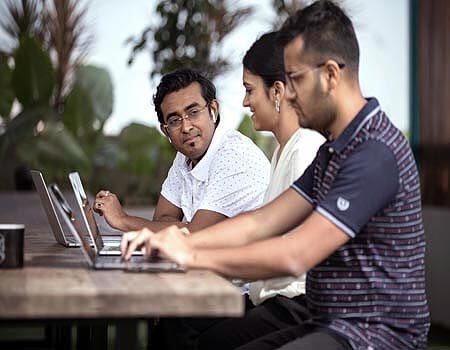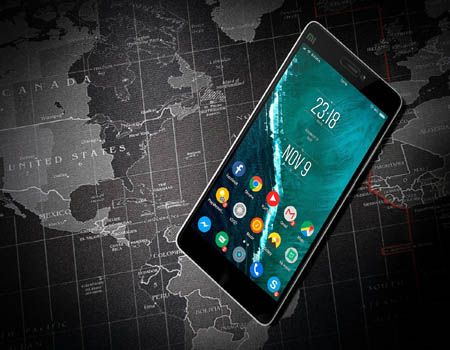This is a difficult topic. And you may think a bit of paranoia is kicking in. Or you may not want to believe all of what we listed below actually happens
But it does!
And it happens more than you think. Awareness is the first step in protecting yourself.
Data breaches and privacy violations are happening every day. From Edward Snowden: the whistle-blower behind the "NSA surveillance revelations" That the American Government tracks its citizens. Cambridge Analytica gained access to private information on more than 50 million Facebook users to allegedly influence the 2016 US presidential election.
Our information is not always being used in the most ethical, transparent or even legal ways. It appears that every aspect of our private lives can be dissected and scrutinized by anyone that mean to do us harm. And it is clear that our personal information is out there.
Hackers pursue personal information because it can be traded, exploited, or used to gain unauthorized access to accounts and systems. Small data points collected over time can be combined to expose patterns, weaknesses, and opportunities for fraud or identity misuse.
One of the most famous hacks: Equifax Breach that may have leaked millions of people’s data, including Social Security numbers. It was just one of many examples where hackers gained access to a large database that could be used for identity theft. These things happen more often than you realize.
Do you have a Web Camera?
Do you cover the Webcam on your computer when you’re not using it? Maybe you should. The camera on your laptop or computer monitor can be hacked to give strangers access to what’s going on inside your house. This is not just TV magic, it can really happen.

All hackers need to do to hijack your webcam is to slip remote-control malware into your laptop or PC (this also can give access to your personal files, messages, and browsing history). Here is how to spot the warning signs and stop it
Check the indicator light
If your webcam indicator light is on, or it’s acting abnormally even though you haven’t turned the webcam on, it’s a sign that something might not be right. It might only be another program or browser extension running in the background and using your webcam. Let’s check it
Browser Extensions
Reboot your device and start your Browser. If the webcam light turns on the moment you open your Browser, the problem is likely to be in a browser extension. Deactivate your extensions one at a time to identify the culprit
Check Your Apps
Another potential reason why your light is flashing might be applications. To test, launch an application and see if the webcam indicator lights up until you spot the one secretly using it. Then decide if you really need that app. If your webcam light turns on a few seconds after you reboot your computer, without launching any applications, you might have been hacked.
Covering your webcam is a simple but effective way to protect your privacy. Hackers can exploit unsecured devices or malware to activate cameras without permission, potentially capturing images or video without your knowledge. A physical cover helps block unwanted access.
When you are surfing the Web, it is way too easy for people to get data or info about you. Beyond Social Media Websites and Shopping behavior, just browsing the Internet and checking your email can get you into trouble. Innocent looking emails might send you to fraudulent banking or other websites that try to capture your login details, a process called Phishing. Other Sites may track your online behavior by placing cookies in your browser.
Using the right Privacy Focused Browsers can go a long way in protecting your online privacy.

Most of the time, it is just small bits of info or data that hackers are after. Your date of birth, along with your email or mailing address, could provide a key that a criminal can use to reset your account passwords or gain access to important account information. One example: Back in 2012, Hackers compromised a "Wired" Staff writer Mat Honan’s digital accounts, and deleted all of his computer files just by having critical bits of information about him.
Security Experts repeatedly us warn that with more of us connecting additional devices to the Internet. These Devices such as thermostats, home security systems, Amazon Echo or Google Home is exposing even more of our personal data to potential hacking and cybercriminals.
There are hundreds of ways people gain legitimate access to your info or data, often with your explicit consent. It is worth considering how often your activities are being monitored and what kinds of information you willingly provide to corporations and the government.
Hacking is not limited to illegal break-ins or financial theft. Many cyber activities operate in legal gray areas, quietly collecting data, monitoring behavior, or exploiting weak security practices. These actions may not always violate laws, but they still pose serious risks to privacy, trust, and digital safety for individuals and organizations.

Companies like Ancestry.com have started offering genetic mapping and profiling services: You just mail in a swab and in return the company sends you the results and stores your DNA records in their databases. But have you ever considered how this data might be used in the future? As we recently saw with the Apprehension of the Golden State Killer used a genetic database at the genealogy service of Ysearch.org. Today it might be solving a murder, but in the future, who knows? Your genetic profile could also be used to determine health coverage or other purposes you did not want or expect.
Seems safe enough, right? Go ahead and call a Lyft or Uber. You will be giving that company data on where you live, who else lives there, and your entertainment habits. Uber even got caught tracking their customers after they dropped them off.
But it’s Just a Game? - Right?
By using GPS data to provide location-based entertainment, these most addictive mobile app's also keeps a close eye on where you and or your kids are throughout the day.
Mobile games like Pokémon Go rely heavily on location data, device access, and constant connectivity to function properly. While engaging, these games often collect more information than players realize, including movement patterns and usage behavior. Understanding what data is gathered helps users balance entertainment with personal privacy and security.

If you are like most of the world, you use Amazon and eBay for much of your online purchases and household services. You might purchase from Star-bucks or Target on your device to order in advance or get discounts. And each time you buy online from major retailers or use their apps, you’re giving them your data for their use.
Just about every mobile device has a GPS chip that locates the phone even when it is turned off. This can allow emergency services to locate you when you need help. The question is, who else has access to that data?
Cell phones are powerful tools but also store a wealth of personal information, making them prime targets for hackers and trackers. From call logs to app usage, these devices constantly generate data that can reveal habits, locations, and sensitive details if not properly secured.
With ATMs to Eye in the Sky, even cameras at department stores, and it seems everywhere. Cameras are always watching you. Red light cameras and cameras on toll roads snap your car’s license plate to send you violation notices or fee invoices. Any time you leave your home in most urban centers in the US and Europe (and in major cities across the world), someone is always watching and what you’re doing.
Today it seems there are thousands of different ways your privacy can be compromised. It seems to be overwhelming, and there is nothing we can do to help solve the problem?

If you are online, your information is out there.
You might not care if companies know your purchase history or where you go on the weekends. And you might not worry about the government tracking you because you think you have nothing to hide. What’s more, there are benefits to sharing our data to take advantage of everything our modern society enables us to do. It’s nice to be able to use Google Maps to find a new restaurant or chat with your friends on Facebook.
So unless you want an "Off The Grid" lifestyle, Modern convenience's requires surrendering a certain amount of your privacy.
But there are some ways you can minimize the impact of potential privacy violations and prevent people from gaining access to your information and data.
Too many times, companies will ask for personal information that they don’t need. Challenge Anyone who asks for your Social Security number.
Don’t put your address on your resume or job search websites. If you have a home business, consider getting a P. O. Box to avoid giving out your personal address.
It seems that everyone wants your email, this can also be a ticket to spam as well as a possible gateway for phishing or hackers to access your account. If you find yourself giving out your email often, consider creating a disposable email address using a free Gmailor Yahoo account. Then, whenever you enter a sweepstakes or join a mailing list, enter that address rather than your personal one. You can still receive messages at that address if you want by forwarding it to your real address and filtering it into a separate folder.

Don’t play games on Facebook that require you to connect your profile. Use privacy settings to lock down your social media profiles, so only your friends can see what you’re posting.
Regularly checking your credit report is a crucial step in protecting your financial health and personal identity. Monitoring your credit report helps detect fraud, unauthorized accounts, and errors early, giving you the chance to address issues before they escalate into serious problems.
In the US, you can order a report for free once a year through each credit reporting agency or by going to AnnualCreditReport.com.
Use a different password for different websites
If a Website gets hacked that you happen to use, don’t hand the hacker the keys to all of your other accounts. People also tell you to change passwords regularly. If you have a good one. Don’t unless there’s a good reason, such as responding to a data breach. Switching passwords often lends to using a weaker password. Here are a few tips on creating strong passwordst
Never give out a password to anyone over the phone or email. You can also try the Norton Identity Safe Password Generator for a new and "safe" password.

It’s far too easy for hackers to gain access to your login data. If you frequently use the Wi-Fi in coffee shops or restaurants, consider investing in an inexpensive VPN solution.
Most major websites including blogging platforms, banks, and even online games offer 2FA protection, Which is a second step of authentication that’s difficult for a hacker to replicate. Often, 2FA will require you to enter a code text to your mobile device or sent via a third-party app.
It may be annoying to always have to enter your passcode, but it will keep people from gaining access to your personal data, contacts, social media accounts, and email if you get separated from your device even for a few minutes.
This is just the tip of the iceberg, but it’s a great way to get started
For an even more comprehensive list, see: 66 privacy tips from Consumer Reports.
And please remember that at RSH Web Services, we do value your privacy. We will not sell your personal information to other companies like other big named hosting companies do, and we work to keep you aware of different ways your privacy might be violated.

Using the Internet safely and protecting your privacy is paramount in today's digital world. It involves adopting practices like using strong, unique passwords for different accounts, being cautious of phishing attempts and suspicious links, and regularly updating software and antivirus programs. Additionally, employing privacy settings on social media platforms and avoiding oversharing personal information are crucial steps. Understanding the risks and being proactive about digital security not only safeguards sensitive data but also ensures a safer online experience overall. By staying informed and implementing these practices consistently, individuals can navigate the internet with greater confidence and peace of mind.
A guest blogger hailing from Switzerland, dedicated to assisting local companies in expanding their reach from regional to national and international levels. With a proven track record in...
This policy contains information about your privacy. By posting, you are declaring that you understand this policy:
This policy is subject to change at any time and without notice.
These terms and conditions contain rules about posting comments. By submitting a comment, you are declaring that you agree with these rules:
Failure to comply with these rules may result in being banned from submitting further comments.
These terms and conditions are subject to change at any time and without notice.
Tweet Share Pin Email
Comments